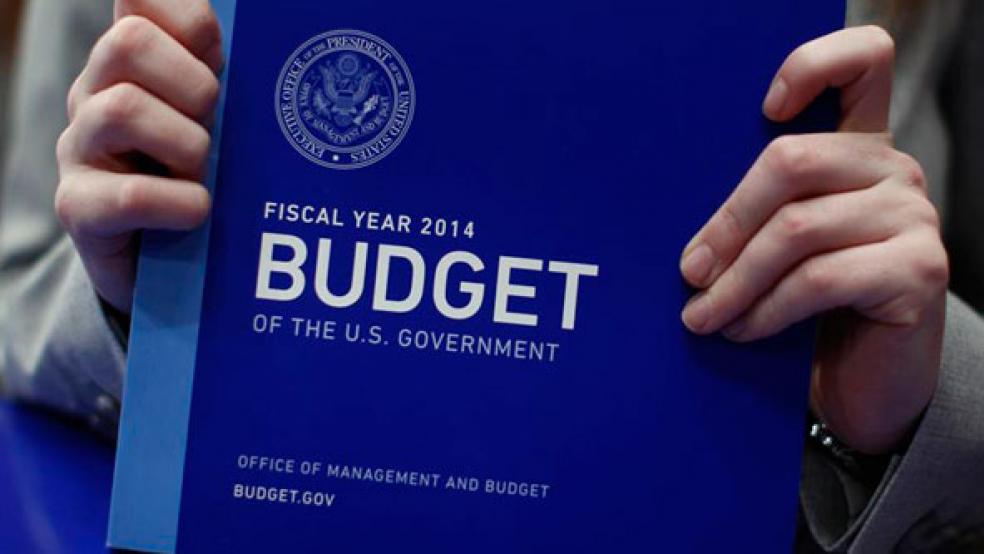Twelve Republicans joined with all 55 Democrats in the Senate on Tuesday to overcome a major parliamentary hurdle to final passage of the two-year bipartisan budget deal crafted by Senate Budget Committee Chairwoman Patty Murray (D-WA) and House Budget Committee chief Paul Ryan (R-WI).
After days of speculation that Senate Republicans might torpedo the budget deal that sailed through the House late last week, 332 to 94, a dozen Republicans led by Sens. Orrin Hatch of Utah and John McCain of Arizona, voted with the Democrats to invoke cloture to begin formal debate.
Related: Congressional Odd Couple Finally Strikes a Budget Deal
The 67 to 33 vote was tantamount to final passage, which could come as early as Wednesday or Thursday. The Democratic Senate leadership will need only a simple majority of the 100-member body to pass the agreement and send it to President Obama for his signature.
“This agreement isn’t everything I’d hoped it would be, and it isn’t what I would have written,” Hatch said. “But sometimes the answer has to be yes. The reality is that Republicans only control one-half of one-third of government.”
Other Republicans who voted to allow the deal to move toward passage were: Lamar Alexander (TN), Roy Blunt (MO), Saxby Chambliss (GA), Susan Collins (ME), Jeff Flake (AZ), John Hoeven (ND), John Isakson (GA), Ron Johnson (WI), Lisa Murkowski (AK) and Rob Portman (OH).
The Republicans who crossed party lines to allow the deal to move ahead had one thing in common: none is facing a tough reelection campaign next year.
Related: The Budget Deal’s New Winners and Losers at D.O.D.
Johnson -- a strong ally of Ryan given their Wisconsin connections, told reporters he plans to vote yes on final passage. Others who voted to proceed will not vote for the final passage of the budget. Immediately after the cloture vote, Alexander said in a statement that he would vote against the budget because “it avoids the federal government’s most urgent need: reducing the growth of runaway entitlement spending. Instead, it spends savings that should be used to strengthen Medicare, pensions, and the air transportation system.”
Related: Government Blatantly Wastes $30 Billion This Year
At least six Senate Republicans who are facing Tea Party or conservative challenges in the 2014 primary races and don’t want to be tagged with having supported an increase in federal spending voted against cloture.
Those naysayers included Minority Leader Mitch McConnell of Kentucky, Thad Cochran of Mississippi, Mike Enzi of Wyoming, Lindsey Graham of South Carolina, John Cornyn of Texas and Pat Roberts of Kansas.
Graham, who often teams up with McCain to back bipartisan measures, has complained about the budget agreement’s $6 billion in cuts to military pensions, which he said would do “disproportionate harm to military retirees,” whose pension benefits will be affected.
Sen. Jeff Sessions of Alabama, the ranking Republican on the Senate Budget Committee, complained that the bipartisan deal would constitute “a real hit to military retirements” and would not do enough to reduce the deficit.
Related: The Other Political ‘Odd Couple’ Could Stir Things Up
The two-year budget deal broke years of partisan gridlock over budget and fiscal issues and assures there will be no repeat of October’s 16-day government shutdown or more furloughs of government employees under the sequester.
For the next two years, the deal allows for $63 billion of new spending above the caps imposed by the sequester.
As part of the agreement, spending on defense and domestic programs would rise from $967 billion scheduled for fiscal 2014 to $1.012 trillion and to $1.014 trillion in fiscal 2015. But the compromise is widely viewed as a half-a-loaf approach that modestly trims the deficit over the next ten years by $23 billion and does nothing to close costly tax loopholes or address exploding long-term costs of Medicare, Medicaid and Social Security that will add to the debt.
Just before the crucial vote, Murray said that while the compromise “won’t solve every problem,” it represents a “step in the right direction and an improvement over the status quo.”
Top Reads from The Fiscal Times:





